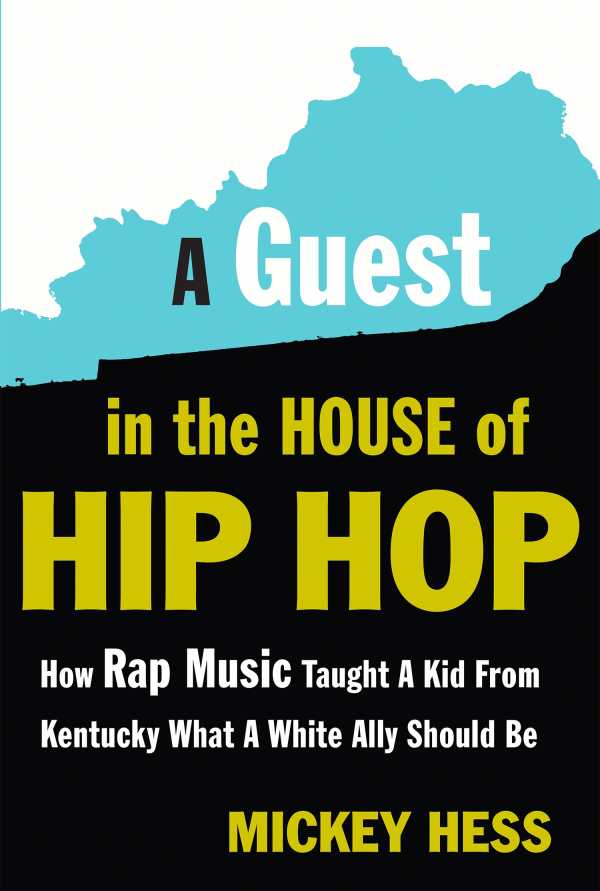A Guest in the House of Hip-Hop
How Rap Music Taught a Kid from Kentucky What a White Ally Should Be
One thing is for sure, Mickey Hess has done his homework for A Guest in the House of Hip-Hop, in which he records trying to be a good ambassador as he amplifies black voices and scholarship.
The title draws upon the work of rapper Lord Jamar, who says that white rappers—as visitors to, rather than originators of, the art—must respect the culture. Hess meshes hip-hop scholarship with vivid, sometimes self-skewering sections of memoir. His personal experiences are examples of trying to be a good ally in academia and rap criticism.
Hess recalls learning about race, especially while growing up in a small and very white town in the South. Recurring broad and personal topics carry throughout the book’s chapters, making it cohesive and conversational. Racist gaffes in the news and what white rappers get away with are noted, and early mentions of Wu Tang Clan’s Ol’ Dirty Bastard later connect to an entire chapter about coauthoring a biography with ODB’s longtime friend Buddha Monk.
Great sources expand the discussion, exploring issues in the classroom and in media. They draw upon classic and contemporary writers on race and black culture and quote rappers, most often Hess’s friend Traum Diggs, alongside other hip-hop authorities.
Thought-provoking points are raised. Hess declares that it’s not right for white professors to leave difficult thinking about race and culture to people of color and says that it’s equally important that white people who teach and publish hip-hop scholarship work under black peer reviews and oversight. Hess never seems to seriously consider quitting the genre, but he questions whether he has a right to his role in it.
A vivid and timely memoir, A Guest in the House of Hip-Hop asks important questions and offers great leads for further listening and reading toward white allyship.
Reviewed by
Meredith Grahl Counts
Disclosure: This article is not an endorsement, but a review. The publisher of this book provided free copies of the book to have their book reviewed by a professional reviewer. No fee was paid by the publisher for this review. Foreword Reviews only recommends books that we love. Foreword Magazine, Inc. is disclosing this in accordance with the Federal Trade Commission’s 16 CFR, Part 255.

